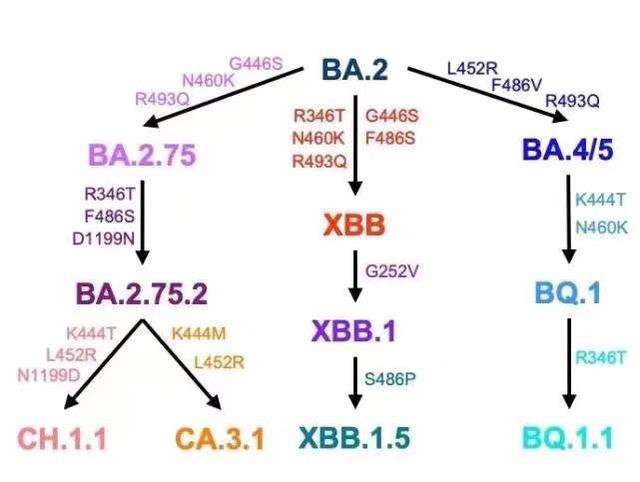New COVID variant CH.1.1 “Orthrus” has spreaded in 60 countries
- Normal Liver Cells Found to Promote Cancer Metastasis to the Liver
- Nearly 80% Complete Remission: Breakthrough in ADC Anti-Tumor Treatment
- Vaccination Against Common Diseases May Prevent Dementia!
- New Alzheimer’s Disease (AD) Diagnosis and Staging Criteria
- Breakthrough in Alzheimer’s Disease: New Nasal Spray Halts Cognitive Decline by Targeting Toxic Protein
- Can the Tap Water at the Paris Olympics be Drunk Directly?
New COVID variant CH.1.1 “Orthrus” has spreaded in 60 countries
- Should China be held legally responsible for the US’s $18 trillion COVID losses?
- CT Radiation Exposure Linked to Blood Cancer in Children and Adolescents
- FDA has mandated a top-level black box warning for all marketed CAR-T therapies
- Can people with high blood pressure eat peanuts?
- What is the difference between dopamine and dobutamine?
- How long can the patient live after heart stent surgery?
New COVID variant CH.1.1 “Orthrus” has spreaded in 60 countries.
The COVID mutated new strain CH.1.1 “Orthrus” appeared, and the infection has exceeded 60 countries so far!
According to the US Centers for Disease Control and Prevention, as of January 28, 2023, CH.1.1 accounted for 1.5% of US cases, ranking fifth.
The CH.1.1 virus variant has certain immune evasion capabilities and may cause new infections, but its pathogenicity in the population has not been significantly enhanced.
After new year, the threat of a new variant virus has emerged around the world. Some countries have discovered that the new variant strain “CH.1.1” is spreading.
Australian scholar Hani named it “Orthrus”.
On January 30, according to the latest data from the US Centers for Disease Control and Prevention (CDC), the US Centers for Disease Control and Prevention is tracking a new strain of the COVID-19 named CH.1.1. CH.1.1 accounts for 1.5% of US cases, the fifth-highest proportion.

Image source: CDC
CH.1.1 belongs to a branch of the mainstream strain BA.2.75, and some experts named it “Orthrus”, which means “two-headed dog” in Greek mythology.
Little is currently known globally about this new strain of CH.1.1, whose transmission levels have been increasing globally since November 2022. It is reported that compared with other variants of COVID-19 pneumonia, CH.1.1 may be more transmissible, more deceptive, and may cause more serious diseases.

Where does it appear?
New Zealand is currently seeing a number of CH.1.1 cases, according to outbreak tracking data website Outbreak.info.
Other hotspots include Papua New Guinea, Cambodia, Ireland and others. The strain has been detected in more than 60 countries and 51 US states.
A previous preprint paper published by researchers at Ohio State University in the United States showed that CH.1.1 appeared in Southeast Asia, causing more than a quarter of infections in parts of the United Kingdom and New Zealand.
How about pathogenic?
The above-mentioned paper pointed out that a mutation called L452R was found in CH.1.1.
This mutation is usually absent in the Omicron strain, but it has appeared in the Delta strain. In addition, the researchers note that CH.1.1 binds well to the ACE2 receptor, the receptor that mediates the entry of the new coronavirus into host cells, suggesting that the virus may at least partially cover some of the antibodies produced by previous infection or vaccination.
According to the US Centers for Disease Control and Prevention, as of January 28, 2023, CH.1.1 accounted for 1.5% of US cases, ranking fifth.
The CH.1.1 virus variant has a certain immune escape ability and may cause new infections, but the pathogenic ability in the population has not been significantly enhanced.
(source:internet, reference only)
Disclaimer of medicaltrend.org
Important Note: The information provided is for informational purposes only and should not be considered as medical advice.



